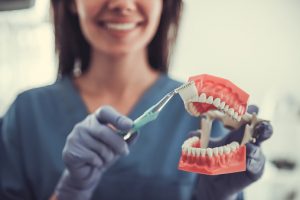 People are more likely to develop viral gastroenteritis or the stomach flu during this time of year. Symptoms that can result from this illness include nausea, vomiting or diarrhea
People are more likely to develop viral gastroenteritis or the stomach flu during this time of year. Symptoms that can result from this illness include nausea, vomiting or diarrhea
Although symptoms of the stomach flu are common and often mild, it is important that they are not ignored because they may be indicative of a COVID-19 infection.
According to the Centers for Disease Control and Prevention (CDC), many people with COVID-19, experience gastrointestinal (GI) symptoms, sometimes prior to having a fever and lower respiratory tract signs. Therefore, if you are experiencing GI issues, you should watch for other COVID-19 symptoms such as shortness of breath or coughing as a precaution.
COVID-19 and viral gastroenteritis are both highly contagious. If you are concerned about a possible infection or experiencing symptoms of either illness, you should speak with a physician. Your doctor can assess your condition and order tests to determine if you have COVID-19 or a gastrointestinal illness.
To schedule an appointment with a doctor at Flushing Hospital Medical Center, please call 718-670-5486.
All content of this newsletter is intended for general information purposes only and is not intended or implied to be a substitute for professional medical advice, diagnosis or treatment. Please consult a medical professional before adopting any of the suggestions on this page. You must never disregard professional medical advice or delay seeking medical treatment based upon any content of this newsletter. PROMPTLY CONSULT YOUR PHYSICIAN OR CALL 911 IF YOU BELIEVE YOU HAVE A MEDICAL EMERGENCY.

 January has been designated as Cervical Health Awareness Month by the National Cervical Cancer Coalition and the American Social Health Association. This initiative helps raise awareness and encourages women to receive regular screenings for cervical cancer and human papillomavirus (HPV).
January has been designated as Cervical Health Awareness Month by the National Cervical Cancer Coalition and the American Social Health Association. This initiative helps raise awareness and encourages women to receive regular screenings for cervical cancer and human papillomavirus (HPV).
